How to Generate Notes from Audio Files with Artificial Intelligence
If you're tired of taking notes manually during meetings and want to automate the process, you've found the right place! In this article, we'll guide you step by step on how to create your own automatic pointer with the help of artificial intelligence.

Here's a workflow that automatically creates a Notion page with the transcript of any recorded meeting. This process saves time and is crucial in sectors such as:
- HR
- Project Management
- Sales
Ready to simplify your work routine? Read on to learn how to implement this workflow in your work environment.
Step 1: Prerequisites
Before you begin, make sure you have the following prerequisites:
- An account on Make
- A connection to Google Workspace
- An OpenAI subscription with access to the GPT-4 model
- A connection to a Workspace Notion
Step 2: Configuring the Workflow
We'll use Make to orchestrate our workflow, which includes 1 Trigger and 4 actions. Start by setting up the following workflow:
1. Drive-Watch New Files Trigger
This trigger is activated when a new file is created or saved in a specific folder in Google Drive.
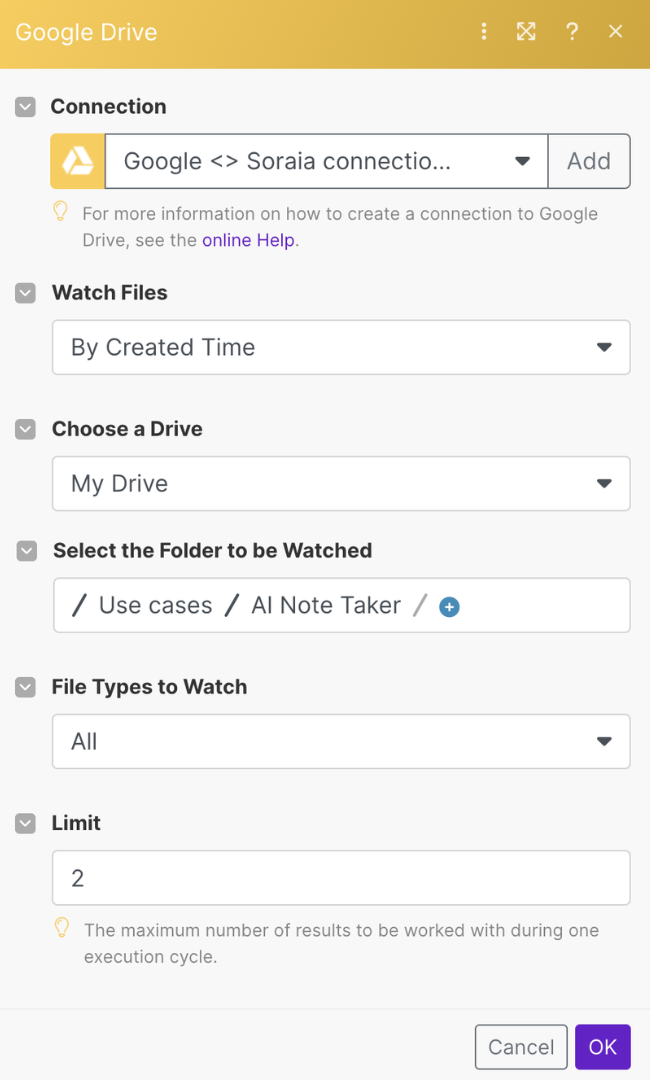
2. Drive- Download Audio Files Action
Download the audio file of the meeting to make it accessible for next steps.
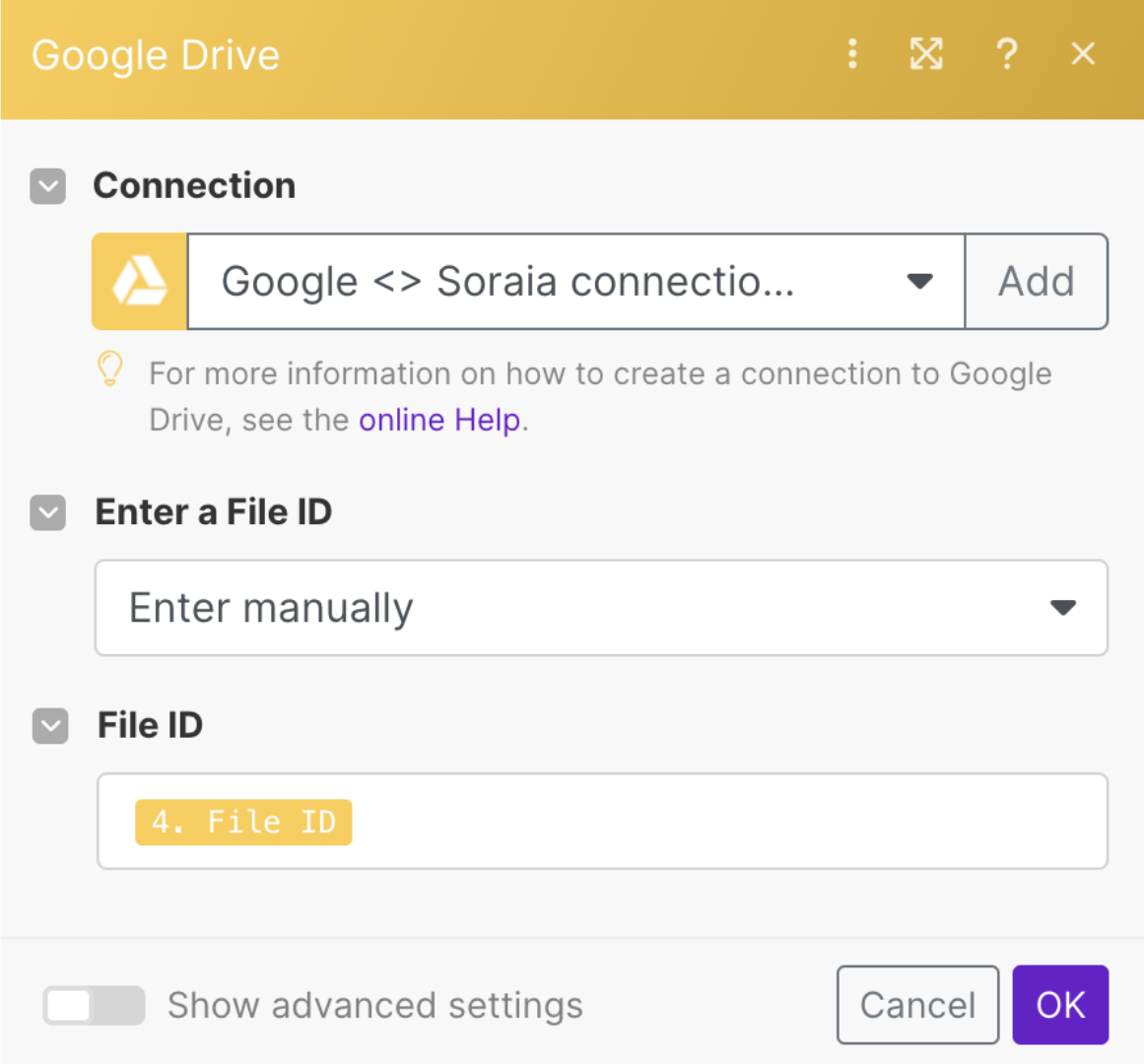
3. Open Ai-Generate Transcript Action
Use OpenAI's Whisper model to generate a transcript of the audio file.
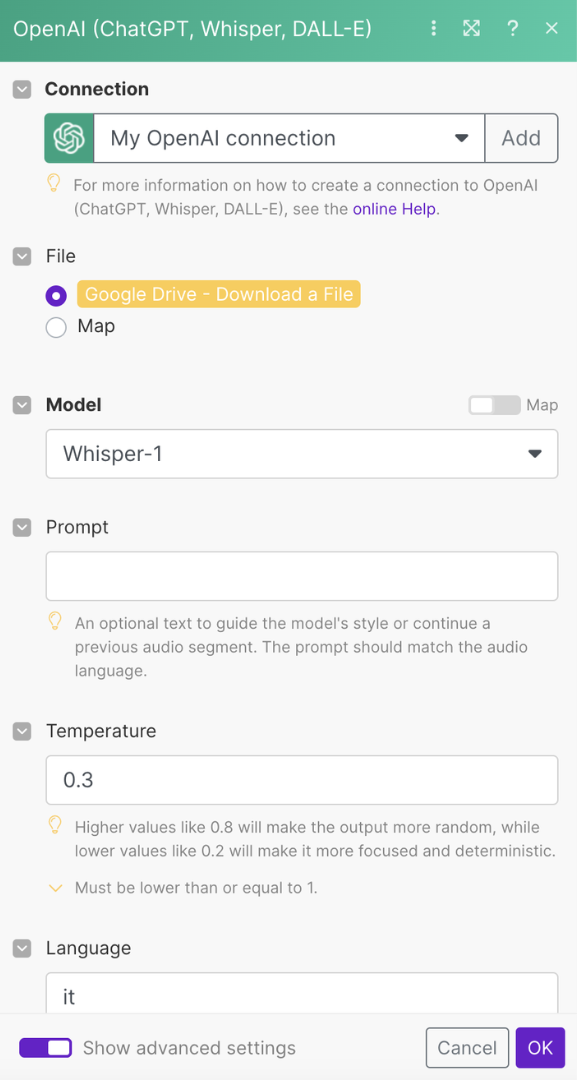
4. Open Ai- Generate Notes Action
To improve readability and make everything smooth, another OpenAI module is responsible for analyzing the transcript according to your personal guidelines. You can customize this operation with a prompt that includes the following parameters:
- Role:
- System: Context and General Background
- User: Specific Indications and Guidelines
- Content of the Message:
- System: Act as an 'X' role
- User: Analyze 'A', provide 'B' with 'C' format
This will allow you to optimize your notes based on your preferences and specifications.
If you'd like to explore the differences between roles further, don't hesitate to consult the Chat Completions API documentation.
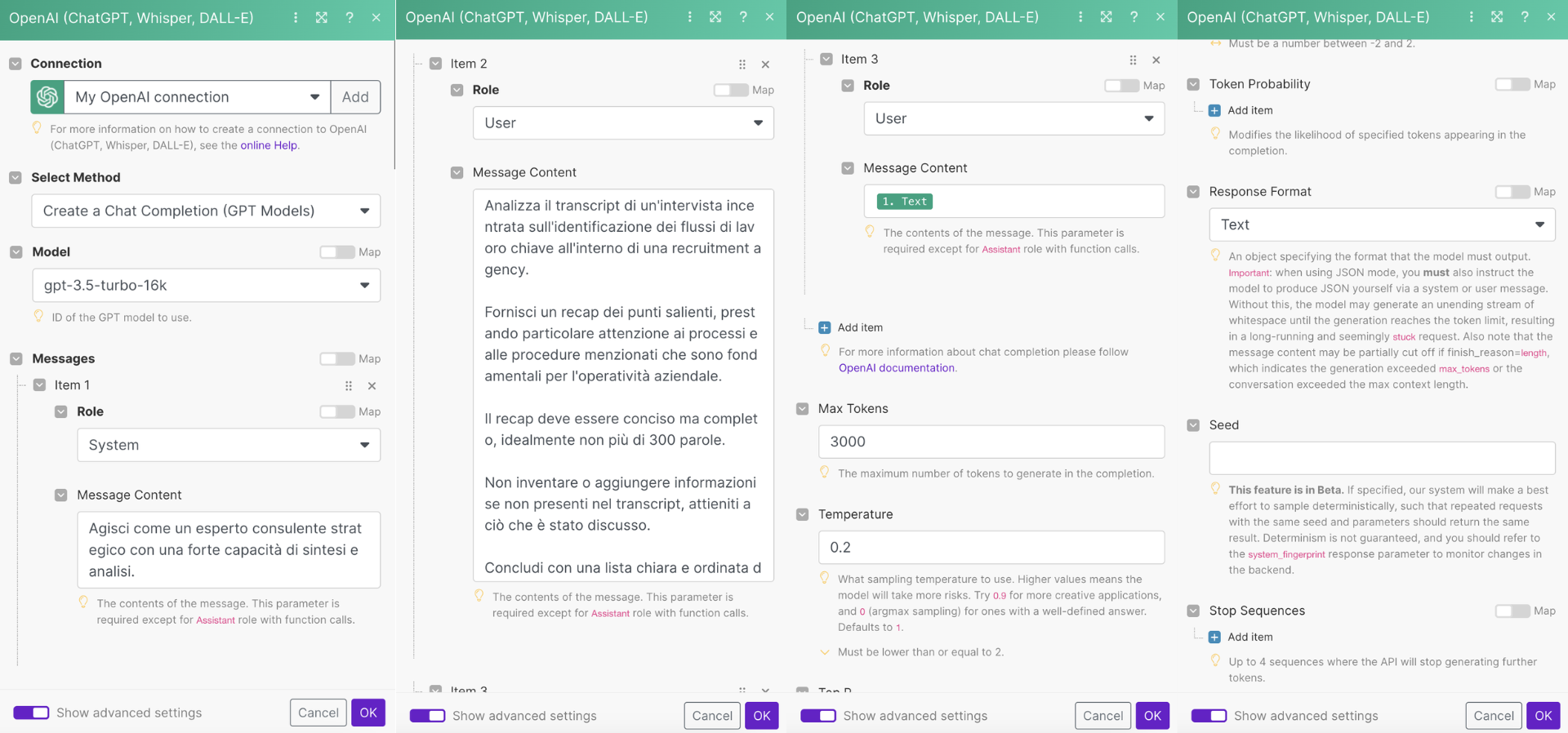
5. Notion- Page Creation
Once the transcript and notes have been generated, we create a new Notion page. Make sure to follow these steps:
- Set the page name using the function Replace to replace the audio file extension and add the current date.
- Save the page in the correct section of your Notion workspace, such as under the 'Interviews' category.
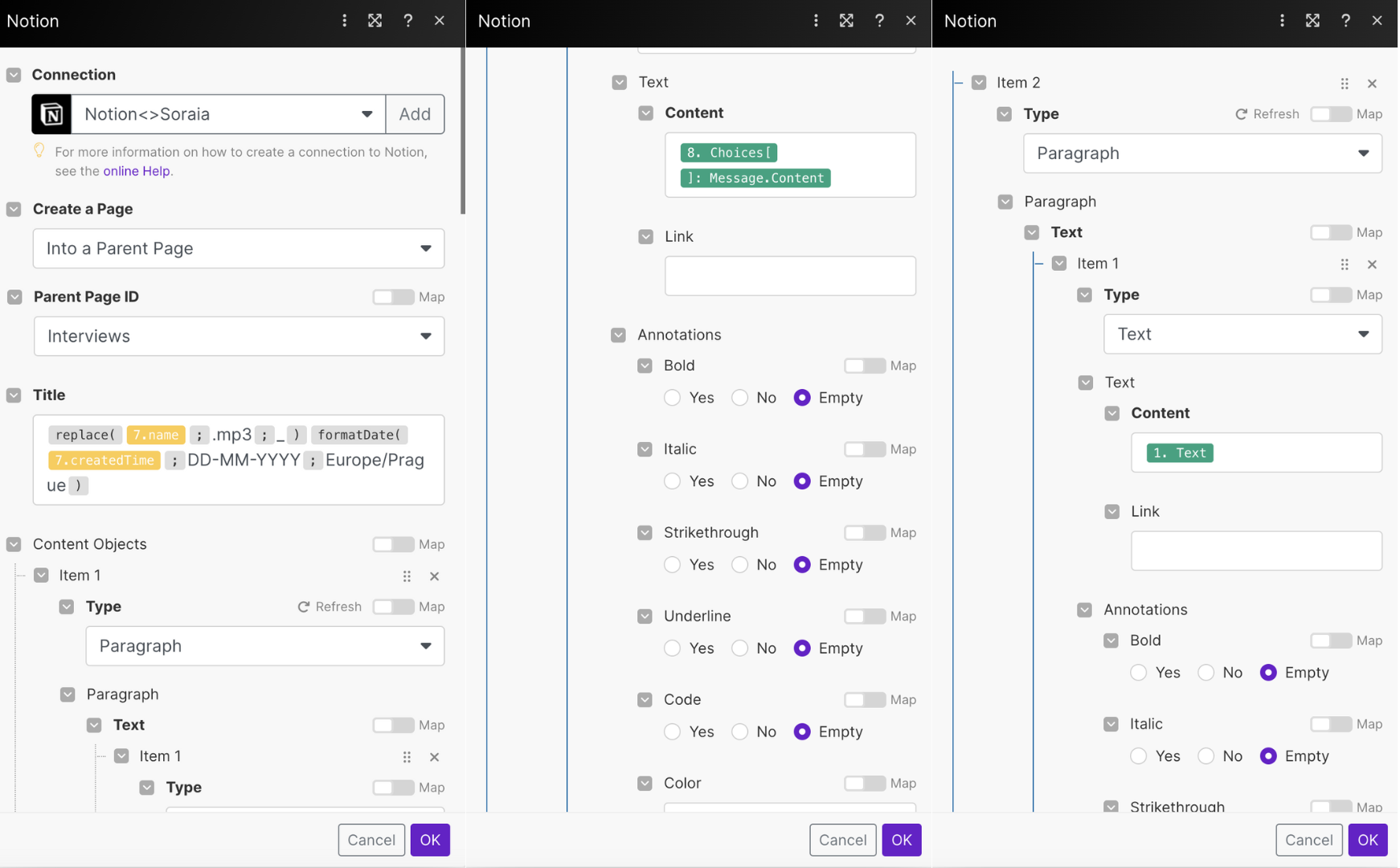
Step 3: Final Result
Et voilà
You have successfully created your automatic pointer with artificial intelligence.
Congratulations! 🚀
Now you can save valuable time during meetings and focus on important decisions instead of taking notes manually.
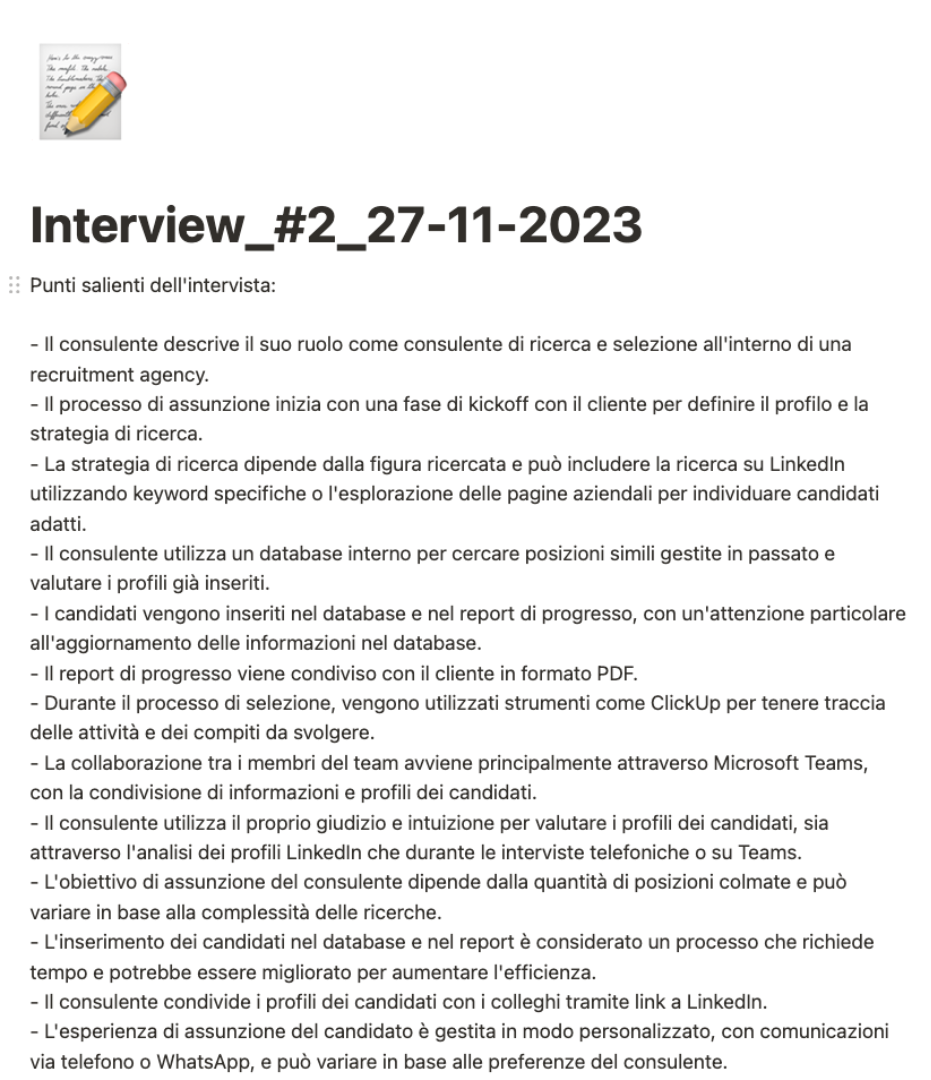
Automating processes can greatly improve efficiency and productivity. With tools like Make and OpenAI, you can create intelligent solutions that simplify everyday tasks.
We hope this guide has inspired you to further explore the possibilities of artificial intelligence in optimizing work.
Do you want to follow an interactive tutorial step by step? Watch the our video on YouTube!
Don't forget to subscribe to Soraia Channel to stay updated on other use cases and automations 🤖
Have a good creation!
Tools Used
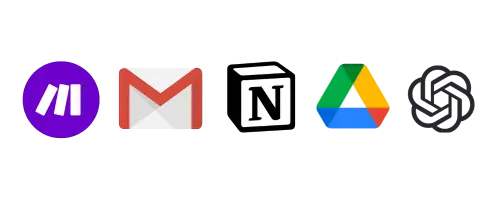
.webp)





